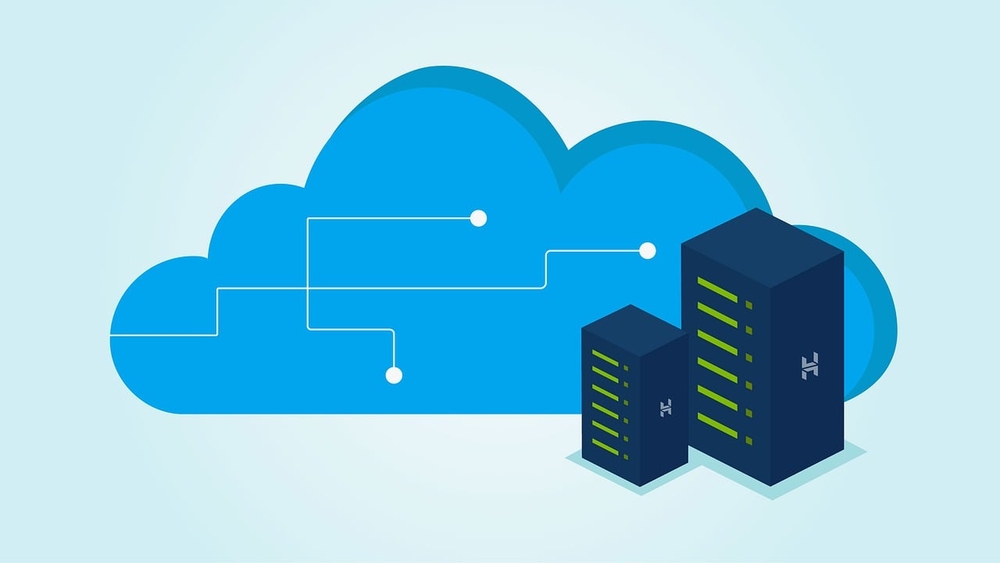
Guide to Choosing Between Shared and Dedicated Hosting
When it comes to selecting a hosting plan for your website, the choice between shared and dedicated hosting is crucial. Each option offers distinct advantages and potential drawbacks, making it important to understand which one best suits your needs. This guide will help you navigate the decision-making process by exploring the differences, benefits, and considerations of shared and dedicated hosting.
Understanding Shared Hosting
Shared hosting is a popular choice for many website owners, especially those just starting out or operating on a limited budget. In a shared hosting environment, multiple websites share the same server resources, including CPU, RAM, and disk space. This setup allows hosting providers to offer lower prices, making it an attractive option for individuals and small businesses.
One of the main advantages of shared hosting is its cost-effectiveness. Because the server resources are divided among multiple users, the overall expenses are significantly reduced. This makes shared hosting an affordable solution for those who need basic hosting services without a hefty price tag. Additionally, shared hosting plans often come with user-friendly control panels, making it easy for beginners to manage their websites without needing extensive technical knowledge.
However, shared hosting has its limitations. Since resources are shared among multiple websites, high traffic or resource-intensive sites can affect the performance of others on the same server. This can lead to slower loading times and reduced reliability, particularly during peak usage periods. Moreover, shared hosting environments are generally less secure, as the actions of one website can potentially impact others.

| Shared Hosting | Dedicated Hosting |
|---|---|
| Lower cost, typically a few dollars per month | Higher costs can be hundreds of dollars per month |
| Limited performance due to shared resources | Higher cost can be hundreds of dollars per month |
| Less secure due to sharing with multiple websites | Higher security with isolated environment |
| Limited customization options | Full control over hardware and software configurations |
| Less scalable, may require plan upgrades | Highly scalable, can easily upgrade hardware components |
Exploring Dedicated Hosting
Dedicated hosting, on the other hand, offers a more powerful and customizable solution. With dedicated hosting, you get an entire server dedicated solely to your website. This means you have complete control over all server resources, allowing for enhanced performance, security, and flexibility.
The primary advantage of dedicated hosting is its superior performance. Since you are not sharing resources with other websites, your site can utilize the full power of the server, resulting in faster loading times and improved reliability. This is particularly important for websites that experience high traffic volumes or require resource-intensive applications. Dedicated hosting also offers greater security, as you are isolated from other users, reducing the risk of vulnerabilities and potential attacks.
Another significant benefit of dedicated hosting is the level of customization it offers. With full control over the server, you can tailor the hardware and software configurations to meet your specific requirements. This includes choosing the operating system, installing custom applications, and optimizing server settings for optimal performance. For businesses with unique needs or complex websites, this level of control can be invaluable.
However, dedicated hosting comes with a higher price tag. The cost of renting an entire server is significantly higher than shared hosting, making it less accessible for individuals or small businesses with limited budgets. Additionally, managing a dedicated server requires technical expertise, either in-house or through a third-party provider, which can add to the overall cost and complexity.
Web Hosting Solutions from HostVai
Performance Comparison
When comparing the performance of shared and dedicated hosting, the differences are stark. Shared hosting can be sufficient for small websites with low to moderate traffic. However, as your site grows and attracts more visitors, the limitations of shared hosting become apparent. Resource contention with other websites on the same server can lead to slower loading times and potential downtime during traffic spikes.
In contrast, dedicated hosting provides unparalleled performance. With dedicated resources at your disposal, your website can handle high traffic volumes and resource-intensive applications without compromising speed or reliability. This makes dedicated hosting an ideal choice for e-commerce sites, large businesses, and websites with demanding performance requirements.
Security Considerations
Security is another critical factor to consider when choosing between shared and dedicated hosting. In a shared hosting environment, the actions of one website can potentially impact the security of others. For example, if one site on the server is compromised, there is a risk that other sites may also be affected. Additionally, shared hosting providers may implement security measures that are less stringent than those available with dedicated hosting.
Dedicated hosting offers a higher level of security due to the isolation it provides. With no other websites sharing the server, the risk of cross-site contamination is eliminated. You also have greater control over security configurations, allowing you to implement advanced measures such as firewalls, intrusion detection systems, and regular security audits. This makes dedicated hosting a preferred choice for businesses that handle sensitive data or require stringent security standards.

Cost Analysis
Cost is a significant factor in the decision-making process. Shared hosting is undeniably more affordable, with plans starting as low as a few dollars per month. This makes it an excellent choice for individuals, small businesses, and those with limited budgets. The low cost is due to the shared nature of the resources, allowing hosting providers to distribute expenses across multiple users.
Dedicated hosting, however, comes at a premium price. Renting an entire server can cost hundreds of dollars per month, depending on the specifications and additional services required. This higher cost is justified by the superior performance, security, and customization options available with dedicated hosting. For businesses with mission-critical websites or high-traffic volumes, the investment in dedicated hosting can be worthwhile.
Scalability and Flexibility
Scalability is another important consideration when choosing between shared and dedicated hosting. Shared hosting plans often come with predefined resource limits, which can be restrictive as your website grows. If you exceed these limits, you may need to upgrade to a higher-tier plan or switch to a different hosting solution, which can be disruptive and time-consuming.
Dedicated hosting offers unparalleled scalability and flexibility. With full control over the server, you can easily upgrade hardware components, increase storage capacity, and adjust resource allocations to accommodate your growing needs. This makes dedicated hosting a future-proof solution that can adapt to your evolving requirements without the need for frequent migrations.

Technical Expertise and Management
Managing a hosting environment requires technical expertise, and this is where the differences between shared and dedicated hosting become evident. Shared hosting is designed to be user-friendly, with intuitive control panels and minimal technical requirements. Hosting providers typically handle server maintenance, security updates, and other administrative tasks, allowing users to focus on their websites.
In contrast, dedicated hosting requires a higher level of technical knowledge. You are responsible for managing the server, including software installations, security configurations, and performance optimizations. While this offers greater control, it also demands more time and expertise. Businesses without in-house technical resources may need to hire external support or opt for managed dedicated hosting services, which can increase costs.
Choosing the Right Hosting for Your Needs
Ultimately, the decision between shared and dedicated hosting depends on your specific needs and priorities. Shared hosting is an excellent starting point for individuals, small businesses, and those with limited budgets. It offers affordability, ease of use, and sufficient performance for low to moderate traffic websites.
However, as your website grows and demands more resources, dedicated hosting becomes a more attractive option. It provides superior performance, enhanced security, and greater customization possibilities, making it ideal for high-traffic sites, e-commerce platforms, and businesses with complex requirements. While the cost is higher, the benefits of dedicated hosting can justify the investment for those who need reliable and robust hosting solutions.
In conclusion, both shared and dedicated hosting have their place in the web hosting landscape. By understanding the differences and evaluating your specific needs, you can make an informed decision that aligns with your goals and budget. Whether you start with shared hosting and upgrade later or invest in dedicated hosting from the outset, choosing the right hosting solution is crucial for the success of your website.

Frequently Asked Questions (FAQ)
What is the difference between shared and dedicated hosting?
With shared hosting, your website lives alongside others, which are neighboring users utilizing the same server. With dedicated hosting plans, your website has a server all to itself.
What is the benefit of a Shared Server?
Multiple websites hosted on the same server encourage cross-promotion and increased network visibility, allowing users to discover and collaborate with other website owners. This encourages mutual assistance, makes new connections easier and can result in increased monthly traffic for hosted websites.
What are the advantages of Dedicated Shared Hosting?
One of the biggest advantages of dedicated server hosting is that you’re the only tenant on the server. Because there’s no one else on the server taking your resources, you can benefit from superior server performance.